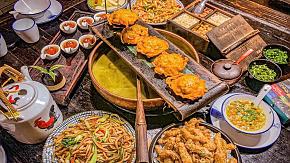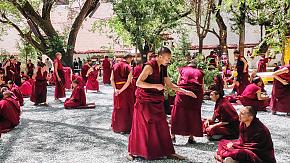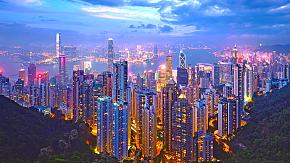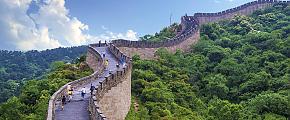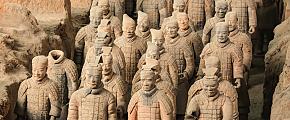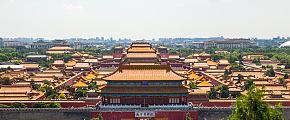Essential Things to Know Before Traveling to China in 2026
China, a country rich in history and culture, is often surrounded by a veil of mystery due to its varied portrayals in the media and stories. It is a country that you can never get to know what it really is by assuming. If you are ready to explore this mysterious country, check out the guide below and start your trip to China!
Visa Policies
Understanding China’s visa requirements is an important step for a smooth trip. While most travelers need a visa, citizens from many countries can enjoy visa-free or simplified entry. Some of our main source markets include France, Germany, the United States, Australia, New Zealand, South Korea, and Japan.
46 Countries With Visa-Free Entry: For business, tourism, or visiting relatives, with ordinary passports, citizens from these countries can stay visa-free for up to 30 days.
- Europe (33 countries): France, Germany, Italy, the Netherlands, Spain, Sweden, Switzerland, Ireland, Hungary, Austria, Belgium, Luxembourg, Poland, Denmark, Portugal, Greece, Cyprus, Slovenia, Finland, Slovakia, Monaco, Andorra, Liechtenstein, Bulgaria, Romania, Croatia, Montenegro, North Macedonia, Malta, Estonia, Norway, Iceland, and Latvia.
- South America (5 countries): Brazil, Argentina, Chile, Peru, and Uruguay.
- Oceania (2 countries): Australia and New Zealand.
- Asia (6 countries): the Kingdom of Saudi Arabia, the Sultanate of Oman, the State of Kuwait, the Kingdom of Bahrain, South Korea, and Japan. The following table presents the main entry policies for China. You can also click the China Tourist Visa Application Guide to learn more.
Budget & Expense
Cashless
China has entered the era of a cashless economy. The major e-wallets are Alipay and WeChat Pay, and you can spot the sign of payment instructions everywhere, from shopping malls to wet market stalls. You can sign up for these payment methods by using your mobile phone number or a Facebook account. Mastercard, Visa, American Express, JCB, and some other bank cards can be credited to your WeChat account. If you prefer, you can still use cash as an alternative.
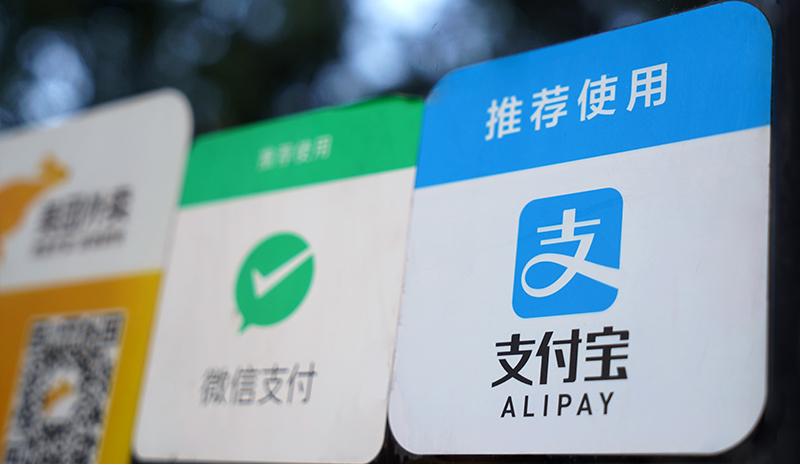 Chinese AliPay and WeChat Payment
Chinese AliPay and WeChat Payment
Is Travel to China Budget-Friendly
Many travelers, including our customers, find that China is more cost-effective than most Western countries they've visited. Generally speaking, 5-star accommodations in major cities like Beijing or Shanghai offer good value, featuring spacious rooms and modern facilities. Transport across the country is convenient and economical, and meals, whether Chinese or Western, are reasonably priced unless you're seeking ultra-fine dining. One consideration is that some of the entrance fees for tourist attractions can be somewhat expensive. Sometimes separate fees are required to pay to visit a complex of temples or museums, but you can always make a choice, which is a good thing the other way around.
How to Get Around China
Where to Visit
China is big enough to offer gazillions of choices for exploration, so try not to limit your visit to the must-sees of Beijing, Shanghai, and Xi'an. There are plenty of things to do and to see. You will encounter places that are rich in history, picturesque landscapes, and a variety of interesting cultures (even the North and the South see distinct cultural phenomena!). Many visitors describe the countryside view as unreal, and it's not an exaggeration. Check out what else is worth going to with our sample China itineraries, or get in touch and let us know what you're interested in - one of our travel experts will work out something for you.
 Lugu Lake in Yunnan
Lugu Lake in Yunnan
Transport
By Plane
When it comes to air travel in China, it's advisable to arrive at the airport three hours before an intentional flight and two hours before a domestic flight. The line in big cities' airports can be very long, particularly on public holidays. There is a good chance for delays due to either weather concerns or air traffic controls, but the airport is modern and sleekly designed, at least offering a great place for a rest.
By Train
The high-speed rail in China is another wow to many foreign visitors. Many cities are interlinked by railways, and tickets are modestly priced. Apart from the great efficiency, traveling by train allows you to see the real China. You can buy train tickets on China Railway's official website (Chinese version only) or at the train station with your passports. Rest assured that we handle our guests' ticket booking without disclosing their information to a third party other than China Railway.
By Private Car
Booking a private car service is highly recommended, especially for tourists with children, a lot of luggage, or a tight schedule of sightseeing. Professional bilingual drivers offer point-to-point pick-up and drop-off and can flexibly adjust the itinerary according to your needs, eliminating the trouble of waiting for a vehicle and communication. You can contact us at any time to customize a suitable travel plan.
By Taxi
In China, taking a taxi through mobile applications is convenient. I recommend using the international version of Didi (Didi Rider), also known as Chinese Uber, which provides a complete English interface and supports payment with international credit cards.
If you have activated Alipay or WeChat Pay, you can directly use the taxi-hailing function within these two super applications. However, please note that the interfaces of services are mainly in Chinese, and you may need to use a translation application.
If you hail a taxi directly on the road, it is advisable to carry a card with your destination or hotel address in Chinese to show the driver, as taxi drivers in China usually don't speak English. You can pay for the taxi either with cash or by scanning a QR code, so it's a good idea to have some change ready.
While taxi drivers in China usually don't speak English, it is advisable to carry a card with your destination or hotel address in Chinese to show the driver. You can pay for the taxi either with cash or by scanning a QR code, so it's a good idea to have some change ready. Alternatively, you can opt for Odynovo, our private transfer service, for a more personalized travel experience.
By Subway
Subway is an easy way to get around the city, and it's available in many cities (Beijing, Shanghai, Xi'an, Guangzhou, Chengdu, etc.), particularly the capital city of a province. There is also a fantastic network of buses in some cities, but very often the names of stops are in Chinese only.
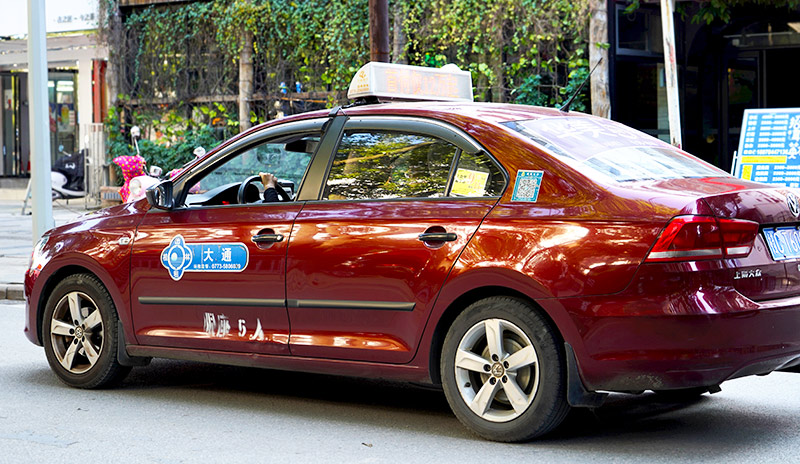 Taxi in China
Taxi in China
Safety & Health
Safety
Overall, China is a country with a low crime rate, but it is important to take care of your personal finances and avoid pickpocketing in crowded places. It's a good idea to invest in travel insurance to protect yourself against any unexpected health issues that might come up during your trip. Besides, be sure to know the local emergency numbers and the embassy's contact information, just in case you need them.
Hygiene and Food Safety
China takes public health seriously, and the people have gotten used to washing hands whenever necessary. Very often, you will see liquid soap available in the bathrooms of restaurants or attraction sites.
When it comes to Chinese food, look at the restaurant that has food hygiene ratings on their premises, and always go with the one that has something above "C". To many's surprise, the suspicious street food is not that dangerous - very rare an upset stomach caused by street food is heard of. Following the local crowd is a good idea, as they certainly have identified the safe zone. The bottom line is avoiding uncooked food in street stalls. That being said, if you do not go on overseas trips often, traveler's diarrhea is still a potential minor incident due to a new diet, dehydration from long-distance flying, a change in climate, and lack of sleep. It is best to consult a doctor for medication advice.
Finding a Doctor
When it comes to medical help, public hospitals are the first go-to place. In highly developed cities such as Beijing, Shanghai, and Guangzhou, there are more doctors who speak both English and Chinese than in smaller cities. It is necessary to have someone who speaks both English and Chinese with you to see a doctor in smaller cities. China has a fairly developed healthcare system, with many hospitals practicing a mixture of Western and Chinese medicine.
Air Quality
In most cities in China, air quality is generally good, especially in popular tourist areas. Although some industrial cities may have poor air quality, they are typically not major tourist destinations. If you have pre-existing conditions or are particularly sensitive to air quality, please let us know in advance so we can tailor an itinerary that suits your needs. The private guided tours we provide have great flexibility, which allows you to swap attractions to get the best out of your stay.
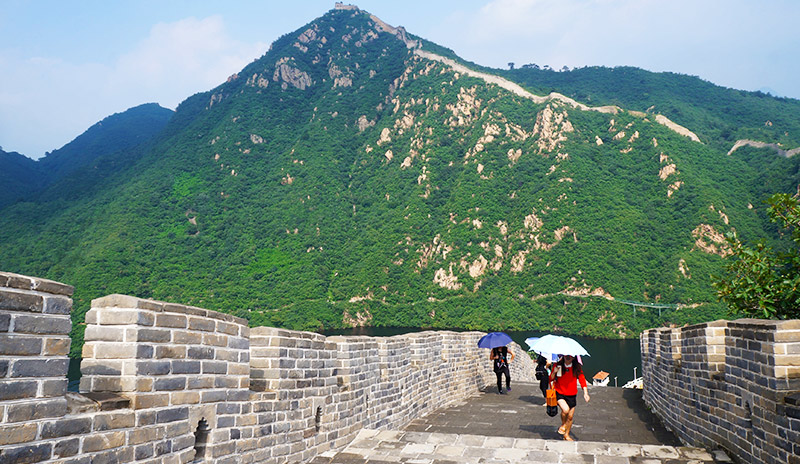 Huanghuacheng Great Wall in China
Huanghuacheng Great Wall in China
Toilet
Although Western toilets are becoming common in newly furbished apartments, squat toilets still dominate public places with a handicapped stall (usually the last one) dedicated to a Western style toilet. Fortunately, sitting toilets can be easily found in starred hotels, airports, malls (in developed cities), upscale restaurants, and even in high-speed trains. Not McDonalds or KFC because they have catered to the needs of the Chinese markets. "WC" and "toilet" are commonly used rather than "bathroom" or "restroom".
There is research evidence showing that squat toilets are more hygienic than sitting ones. As there is a fairly strong chance of using a squat toilet when needed, I would recommend you practice squatting one month prior to your travel.
Always remember to bring your toilet paper as usually it is not provided in public toilets. You may come across a bin next to the toilet, which is for used toilet paper because some of the sewage systems are not designed to deal with paper. Sometimes there is a notice of instruction stuck on the back of the door, but they are usually in Chinese.
Dietary Consideration
Vegan and Vegetarian
What to know before going to China is that the Chinese love meat so much that even a tofu dish is likely to contain meat. But don't panic, it doesn't mean that they don't eat veggies. Popular (and convenient-to-find) non-meat options include noodles, rice, eggplant, garlic, bok choy, and many other plant foods.
The safe bet is to visit a vegetarian restaurant, which can be hard to find and often only available in big cities. It would be much easier to have a local check out the Chinese review sites to find one. Or you can order a plate of stir-fried vegetables, but this is not guaranteed; sometimes there is pork mince sprinkled on the vegetable. You can tell the waiter or waitress that "bú yào fàng ròu" (no meat).
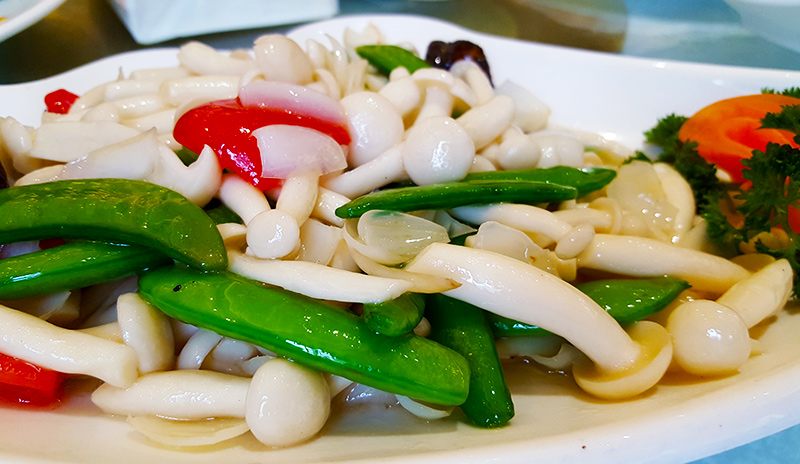 Chinese Cuisine for Vegetarians
Chinese Cuisine for Vegetarians
The Hot Water Myth
Chinese people believe that drinking hot water is good for your stomach, which explains why tea is a popular drink. Don't be surprised if you are offered a glass of warm or hot water!
Social Customs
Greeting
To greet someone in Chinese, a friendly and useful phrase is "nǐ hǎo (hello)". Handshake? Definitely OK but a bit formal. Nodding? Yes, when there are too many people to shake hands with separately. Hugging? More common between friends and family members.
Restaurant Manners
Unlike Western restaurants where diners wait for the waiter or waitress to approach (sometimes it can be a long wait if the business is busy), Chinese restaurants prefer to get things done more quickly. It is OK to signal or call for the staff to bring a menu or check the bill.
Tipping
Tipping is not a common practice in restaurants or taxi drivers. However, it greatly demonstrates your appreciation to the private service provider, such as your chauffeur and personal guide. The amount of tipping really depends on your level of satisfaction. Generally, the tipping ranges start from RMB 200/day for the guide and RMB 100/day for the driver.
Queuing
With an enormously large population, China is no doubt packed everywhere. Personal space is a rare concept among the Chinese in terms of queuing. Due to the long lines and crowds, you might experience some unexpected physical contact with others.
Bargaining
At local markets or street vendors, feel free to bargain until you find a deal you're satisfied with. In malls or chain stores, prices are usually fixed, but it's always worth asking if there are any discounts or promotions available.
Taking Photos in China
Chinese people are often friendly about having their photos taken and are often happy to pose with you. The street photograph is usually fine, but permission would probably yield better results.
Gifts
There are many unique souvenirs in China that you can take home. Tea is a great choice, with a variety of types such as black tea, Pu'er tea, and oolong tea, each with distinct flavors and health benefits. Silk products are also popular; items like silk scarves and clothing are both beautiful and comfortable. Calligraphy souvenirs, such as calligraphy fans or Chinese calligraphy brush pens, capture the essence of traditional Chinese culture. Traditional Chinese paintings are another great option; a beautifully crafted painting can add an artistic atmosphere to your home. These souvenirs not only serve as mementos but also allow your friends and family to experience China's unique charm.
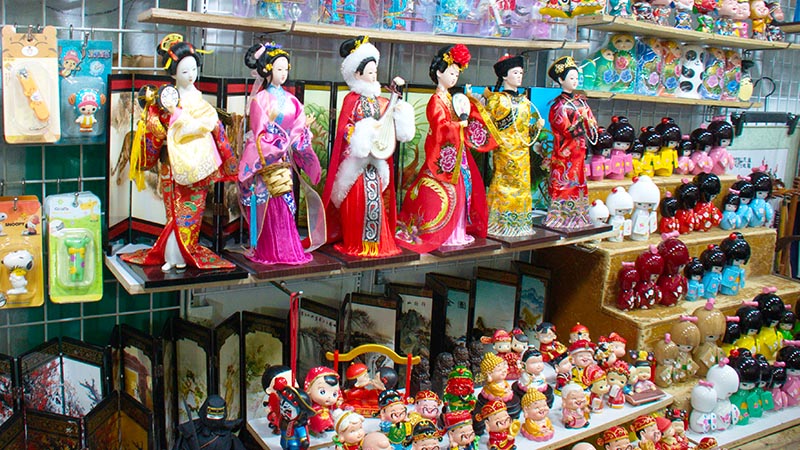 Handicrafts
Handicrafts
Effective Communication
Language
China is one of the countries that you definitely want to have a guide to wander around with. Although English is largely taught in China from primary school in recent decades, not many are able to use it, not to mention the crappy translation for street signs. Getting lost in translation is part of the experience, but many times it can be frustrating, like when you try to order something to eat or tell a doctor about your ailment. Another bonus of having a guide is that you will not get bored when visiting monuments with lots of scripts while having no idea about the stories behind them.
Mandarin is the official language of China, although less used in places where the local dialect has a strong influence, such as Guangzhou (speaking Cantonese) and Chengdu (speaking Sichuanese). Even if you are a Mandarin expert, it is still a challenge. But worry not, people would be happy to switch to Mandarin if asked.
Instant Message Tools
The China-developed and operated app, WeChat (Weixin in Chinese), dominates the communication world of China. Basically, everyone is using it, from a 70-year-old granny to pupil. Don't worry if you want to use it - WeChat is available in English and is a great way to stay in touch with locals. WhatsApp, Instagram, Snapchat, Line, Messenger are all blocked (VPN required).
Many are shocked to learn that mainstream social media or websites are blocked in China, but it is a true fact that inbound travelers need to deal with. The banned list includes Google (all affiliated products), Facebook, Instagram, Twitter, YouTube, and WhatsApp. To access these, you will need to install a VPN before your trip. For independent travelers, a VPN is even more crucial, as you will need Google Translate and the map to navigate through.
Additional Travel Information
Tanning
Like many eastern Asians, the Chinese are not into tanning. In summer, you will encounter hundreds of different umbrellas to protect them from the sun. It is quite nice to enjoy the design of the umbrellas though.
Embracing Curiosity in Smaller Cities
In smaller cities other than Beijing or Shanghai, foreign visitors are not very common, which might lead to some curiosity, such as people staring or taking photos. This is usually harmless, so don't get irritated. Feel free to smile or start a conversation.
Braver English learners may take the chance to speak to you or have a photo together. And you will feel like being a superstar in a foreign country!
Plan Your China Tour With Odynovo
China is a great place to visit! Come open-minded, and you will have an experience like no other. This guide is intended to help you with your trip planning, and you are more than welcome to send an inquiry or send to [email protected] to get a personalized itinerary for free!
Related Posts You May Like
What Our Clients Say
Explore the latest verified reviews of Odynovo's travel services on Tripadvisor, Google, Trustpilot, Product Review and more trusted platforms.


